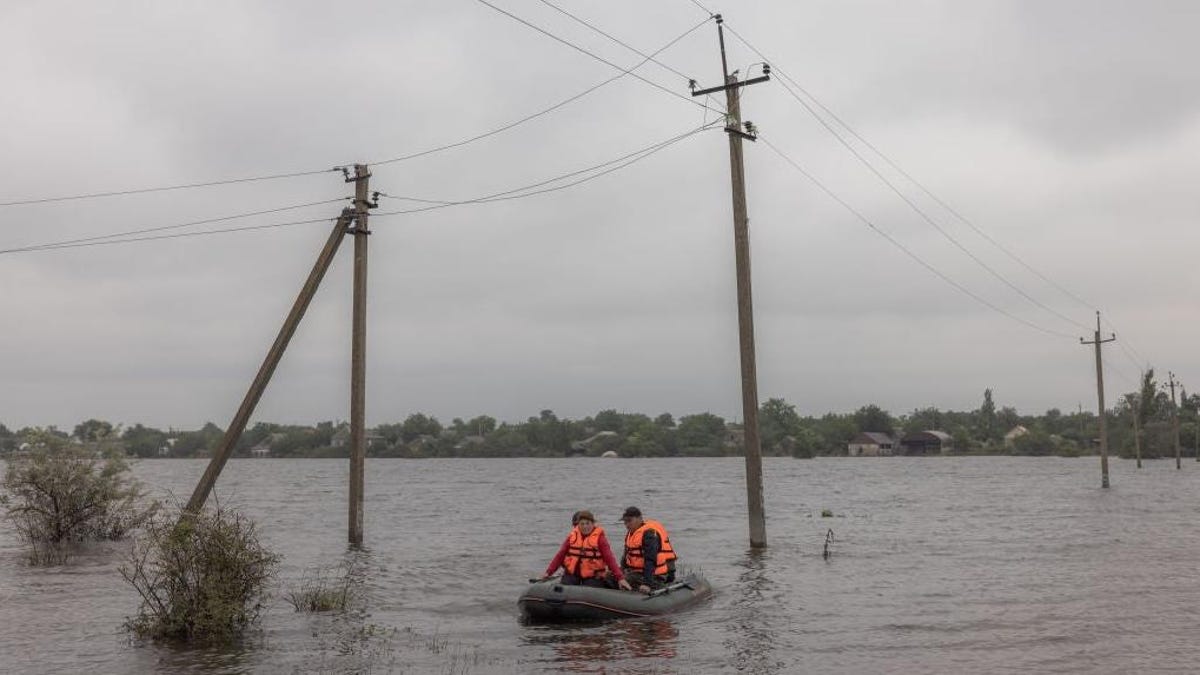
Russia’s ongoing war against Ukraine has destroyed infrastructure and displaced about 5 million people from the country since last spring. The country’s conservationists have also noticed that the war is killing endangered Black Sea dolphins and harbor porpoises.
Harbor porpoises and bottlenose dolphins have washed up dead on the Black Sea’s shores in droves since last February. Animal experts, who are increasingly concerned about the environmental impacts of the war, are dedicated to gathering evidence of ecocide against Russia, the New York Times reports. Experts are conducting autopsies of the dead marine mammals to collect proof of ecocide and to understand how the war is affecting natural ecosystems. Ecocide is used to describe the intentional destruction of an ecological system.
Advertisement
Pawel Goldin, a zoologist at the Ukrainian Scientific Center of Ecology of the Sea who specializes in marine mammals, told the New York Times that losing these sea creatures would be a tragedy. “They are keystone creatures for the marine ecosystem,” he said. “If dolphins are in a bad condition, then the entire ecosystem will be in a bad condition.”
Marine environments rely on the presence of species like porpoises and dolphins. They eat a wide variety of fish and other marine life, keeping populations in check. And they themselves are food sources for larger marine animals like sharks, according to the World Wildlife Fund.
Advertisement
Advertisement
Marine habitats in and around Ukraine are being endangered by the fighting. Russian forces are also using sonar devices on warships. These devices hurt the echolocation that marine mammals like dolphins and porpoises use to hunt for prey and to communicate. When confused, these marine animals could panic and swim into rocks. They could even be killed by live fire, NBC News reported. Some dolphins and porpoises are potentially dying from starvation because they’re unable to hunt properly if they’re unable to use their echolocation to navigate the waters.
Experts worry that the number of dead dolphins and porpoises is higher than they currently understand. Some of the marine animals have probably died in the waters and never washed up on the shores of the Black Sea.
The push for ecocide to be recognized and punished internationally has picked up steam in recent years. In 2020, a closing panel at the Symposium on Human Rights and the Climate Crisis discussed how international criminal law could be used to protect the environment. An international group of experts announced a formal definition of ecocide in 2021. The experts described it as the “unlawful or wanton acts committed with knowledge that there is a substantial likelihood of severe and either widespread or long-term damage to the environment being caused by those acts.”
This March, the legal affairs committee of the European Parliament voted to recognize ecocide as a crime, Euractiv reported. Environmental activists were elated and hoped that the vote meant that ecocide could eventually be considered an international crime through the International Criminal Court. There are four acts that are recognized as international crimes—genocide, war crimes, aggression, and crimes against humanity. International activists have argued that ecocide should become the fifth act in that list.
Advertisement
“When you put ecocide alongside genocide, it’s also about saying that actually, when we destroy ecosystems upon which we essentially depend for our existence, then that is just as bad, wrong, dangerous, serious as destroying people,” Jojo Mehta, co-founder and executive director of Stop Ecocide International, told CNN.
Russia’s invasion of Ukraine has numerous examples of environmental crimes. The war has ignited fires and polluted sources of water, which has endangered Ukrainians and wildlife alike. One recent major incident that created environmental devastation was the collapse of the Kakhovka Dam in southern Ukraine. Evidence suggests that Russian forces blew up the dam, the New York Times reported.
Advertisement
The flooding that followed displaced thousands of people in the region and flooded villages. The rushing waters that were released by the damaged dam also swept up multiple sources of pollution including agricultural chemicals and washed them toward the Black Sea, CNN reported.
Russian forces are using dolphins as part of their defense. The country’s military has several pens of trained dolphins near the Black Sea port of Sevastopol, according to the UK’s Defense Intelligence Agency. The agency believes that these dolphins are used to counter enemy divers, and recent satellite photos show that Russia has increased the number of pens holding these trained dolphins.
Advertisement
Want more climate and environment stories? Check out Earther’s guides to decarbonizing your home, divesting from fossil fuels, packing a disaster go bag, and overcoming climate dread. And don’t miss our coverage of the latest IPCC climate report, the future of carbon dioxide removal, and the un-greenwashed facts on bioplastics and plastic recycling.
Services Marketplace – Listings, Bookings & Reviews